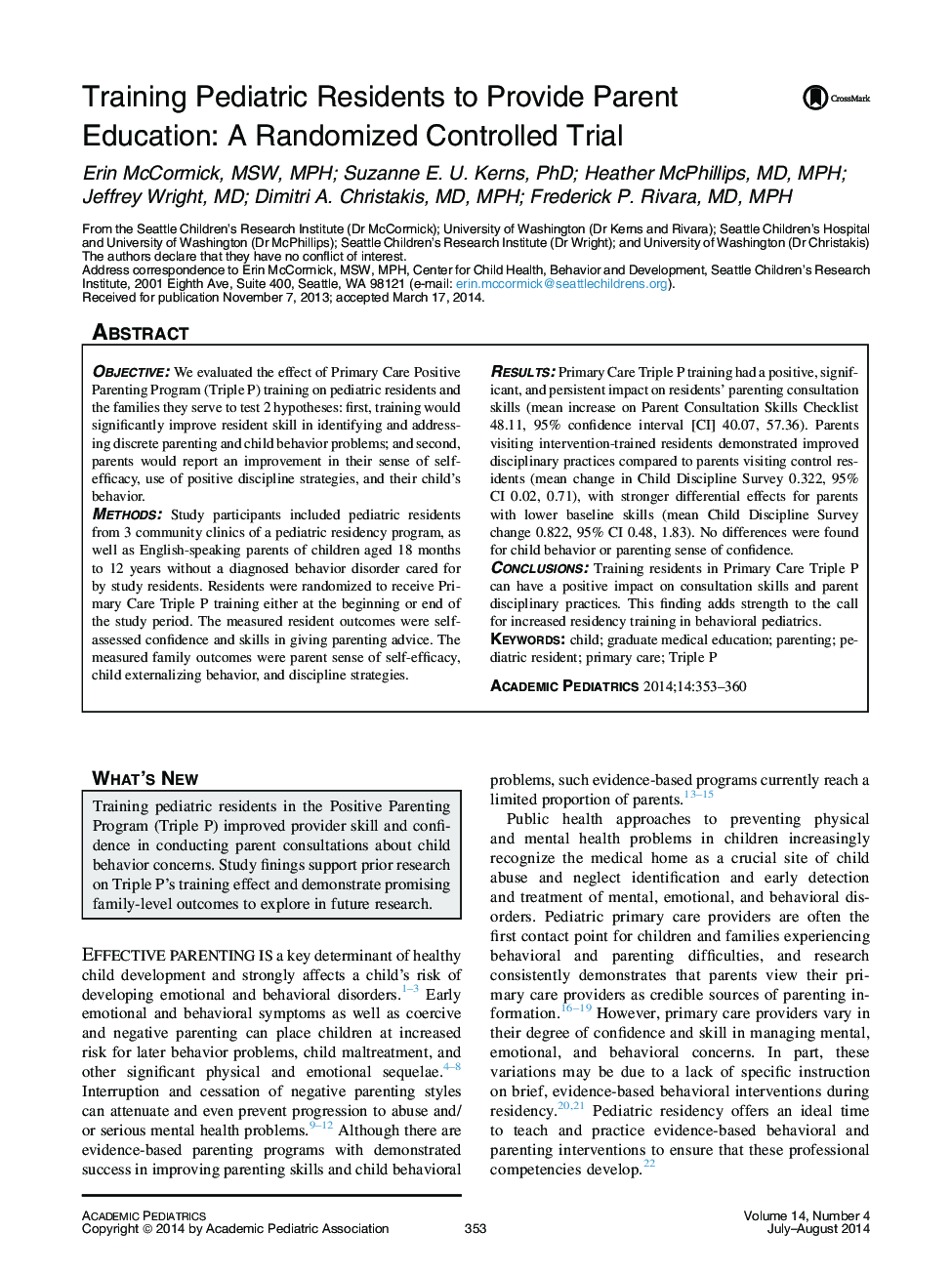| Article ID | Journal | Published Year | Pages | File Type |
|---|---|---|---|---|
| 4139474 | Academic Pediatrics | 2014 | 8 Pages |
ObjectiveWe evaluated the effect of Primary Care Positive Parenting Program (Triple P) training on pediatric residents and the families they serve to test 2 hypotheses: first, training would significantly improve resident skill in identifying and addressing discrete parenting and child behavior problems; and second, parents would report an improvement in their sense of self-efficacy, use of positive discipline strategies, and their child's behavior.MethodsStudy participants included pediatric residents from 3 community clinics of a pediatric residency program, as well as English-speaking parents of children aged 18 months to 12 years without a diagnosed behavior disorder cared for by study residents. Residents were randomized to receive Primary Care Triple P training either at the beginning or end of the study period. The measured resident outcomes were self-assessed confidence and skills in giving parenting advice. The measured family outcomes were parent sense of self-efficacy, child externalizing behavior, and discipline strategies.ResultsPrimary Care Triple P training had a positive, significant, and persistent impact on residents' parenting consultation skills (mean increase on Parent Consultation Skills Checklist 48.11, 95% confidence interval [CI] 40.07, 57.36). Parents visiting intervention-trained residents demonstrated improved disciplinary practices compared to parents visiting control residents (mean change in Child Discipline Survey 0.322, 95% CI 0.02, 0.71), with stronger differential effects for parents with lower baseline skills (mean Child Discipline Survey change 0.822, 95% CI 0.48, 1.83). No differences were found for child behavior or parenting sense of confidence.ConclusionsTraining residents in Primary Care Triple P can have a positive impact on consultation skills and parent disciplinary practices. This finding adds strength to the call for increased residency training in behavioral pediatrics.
